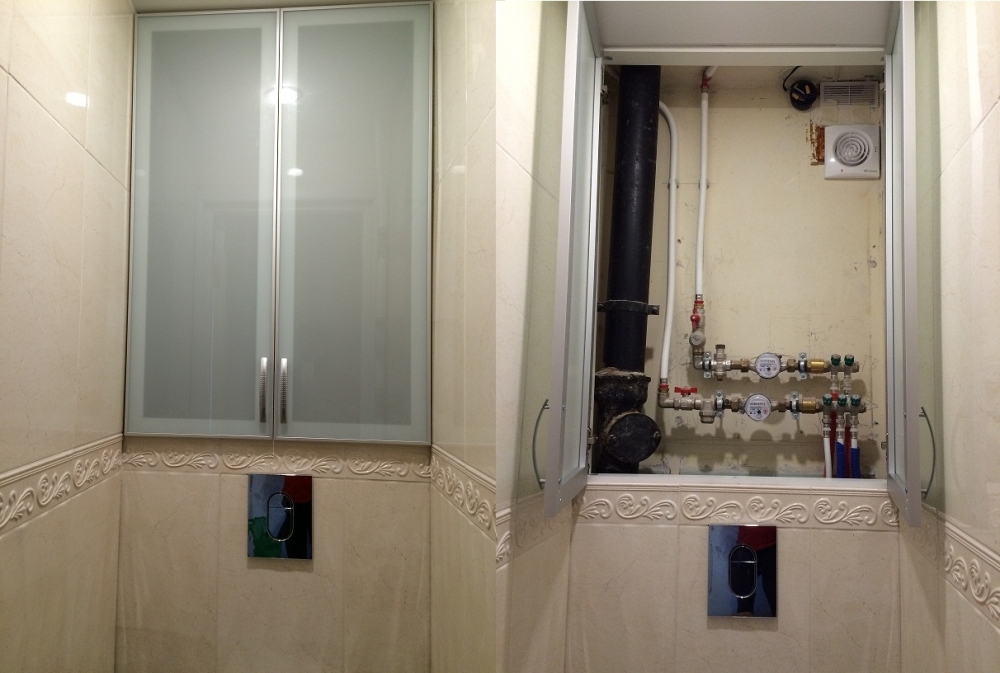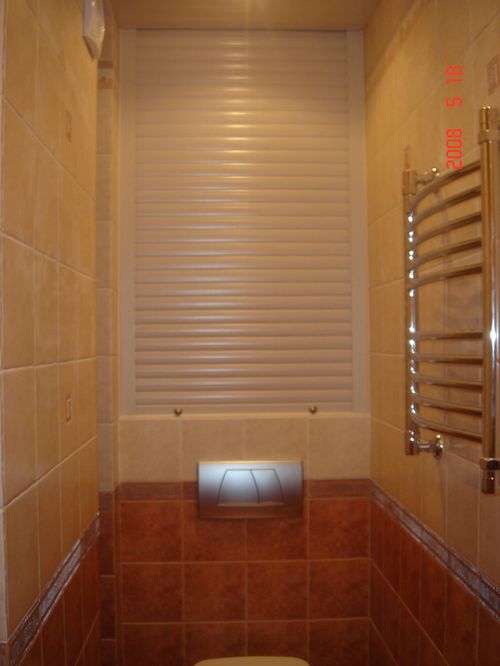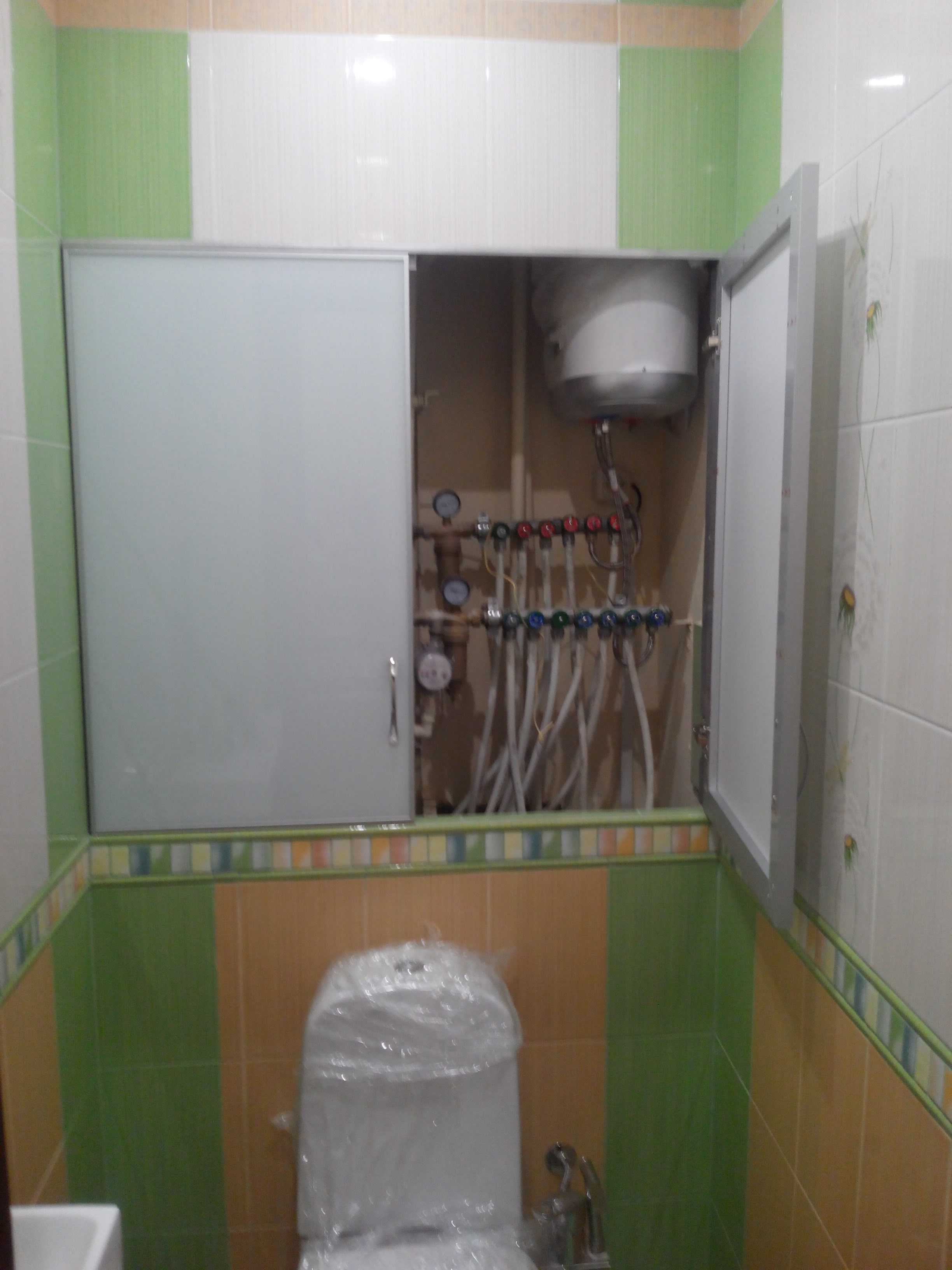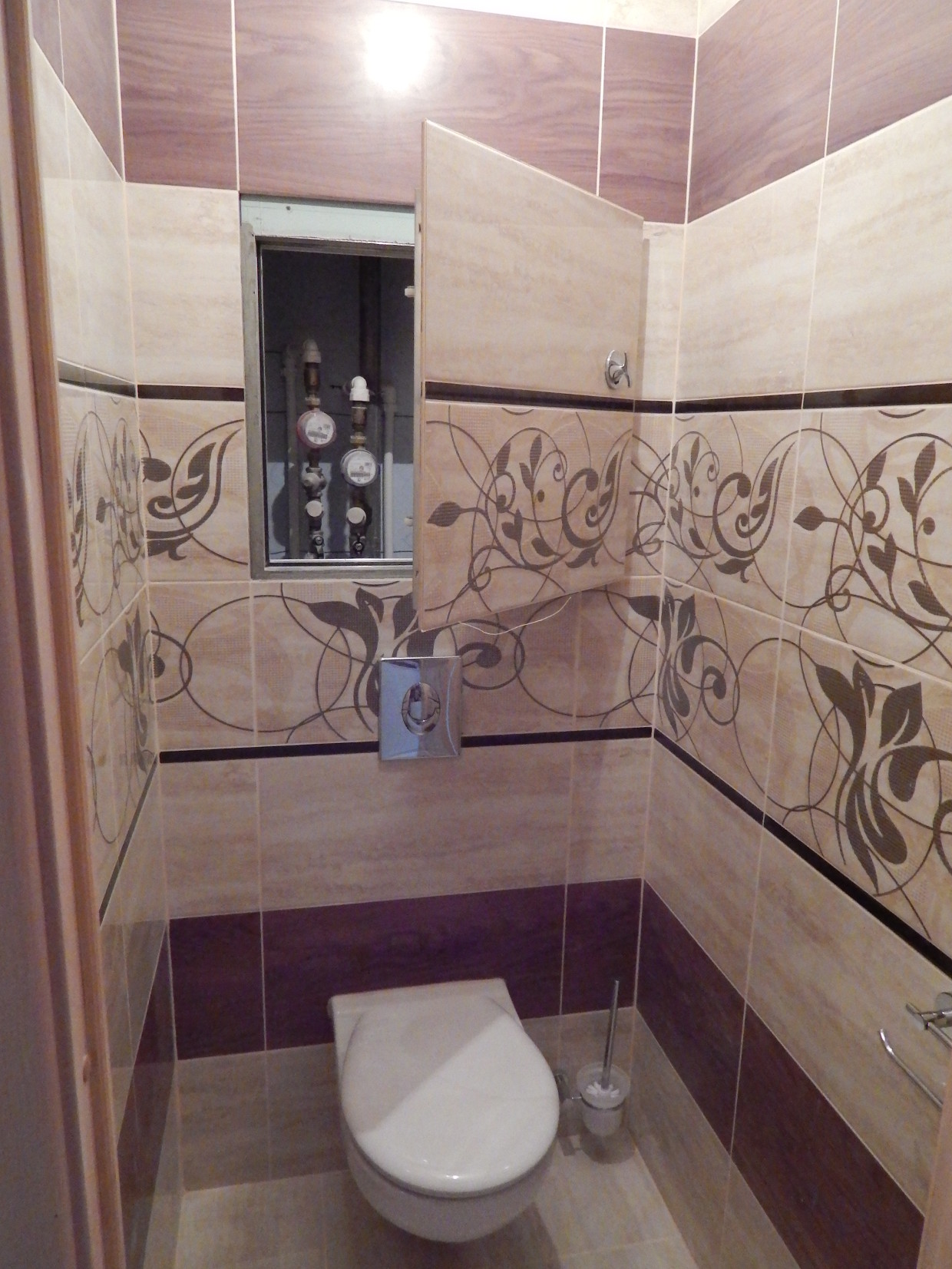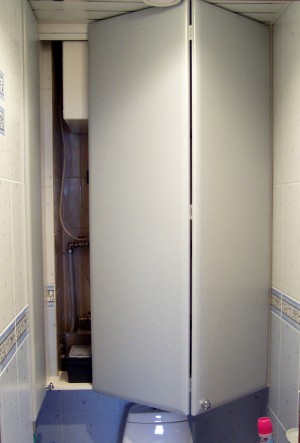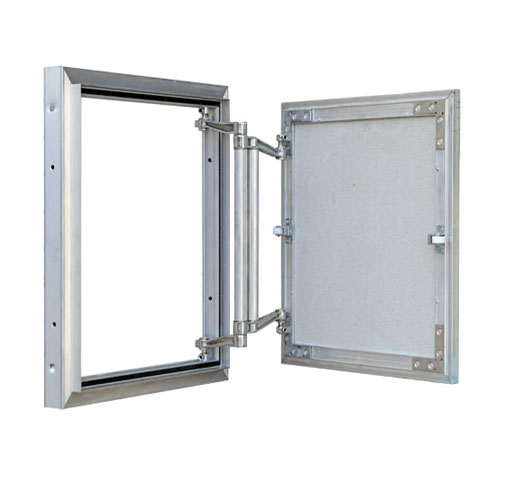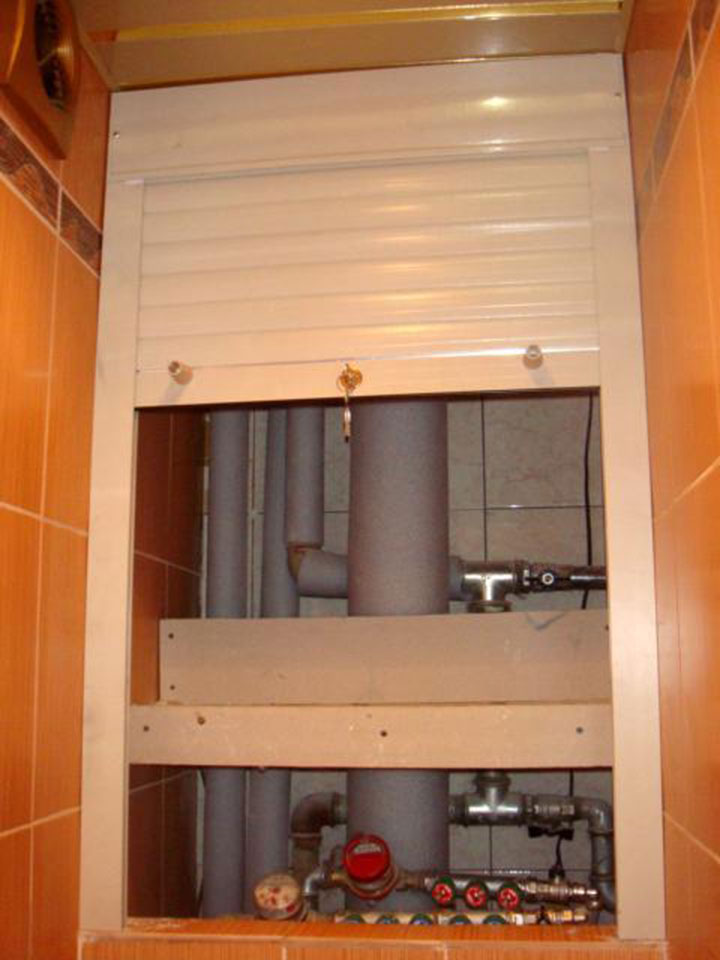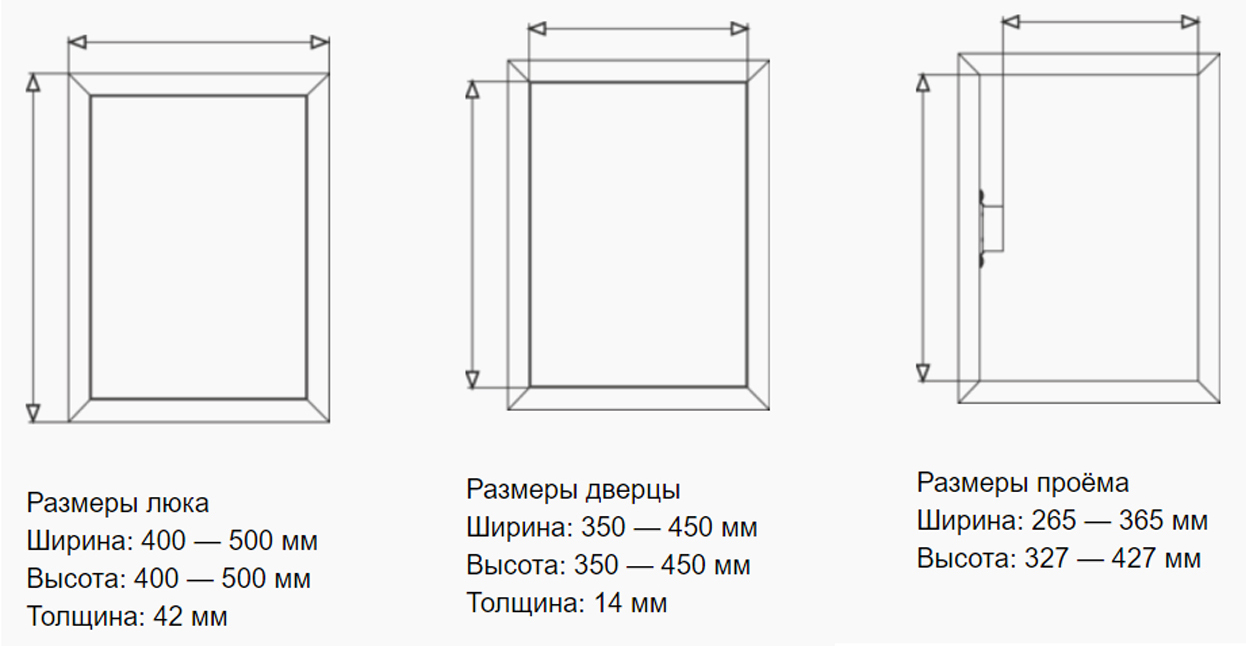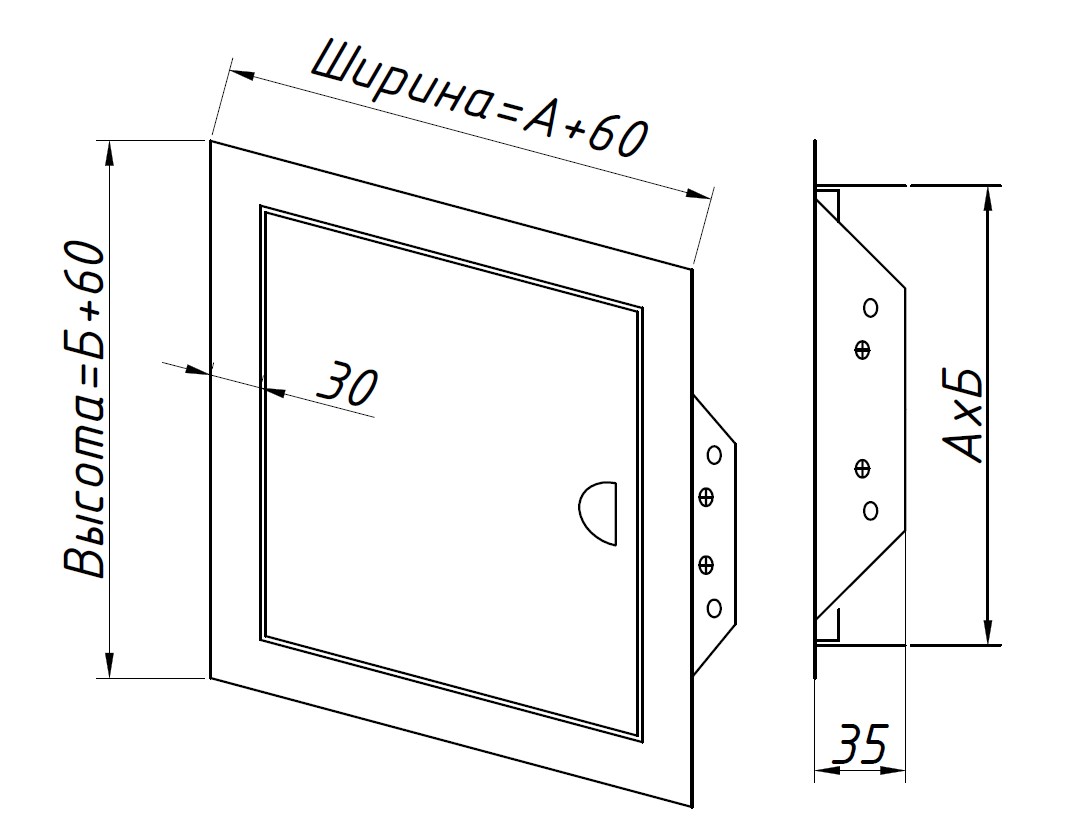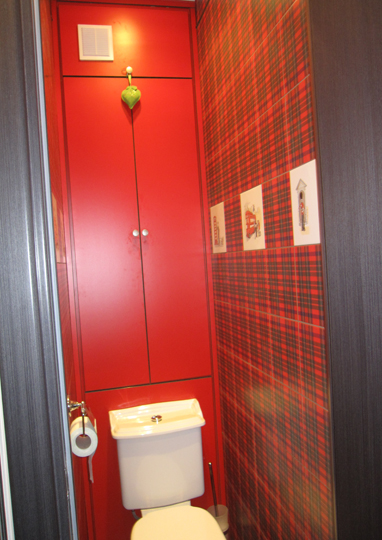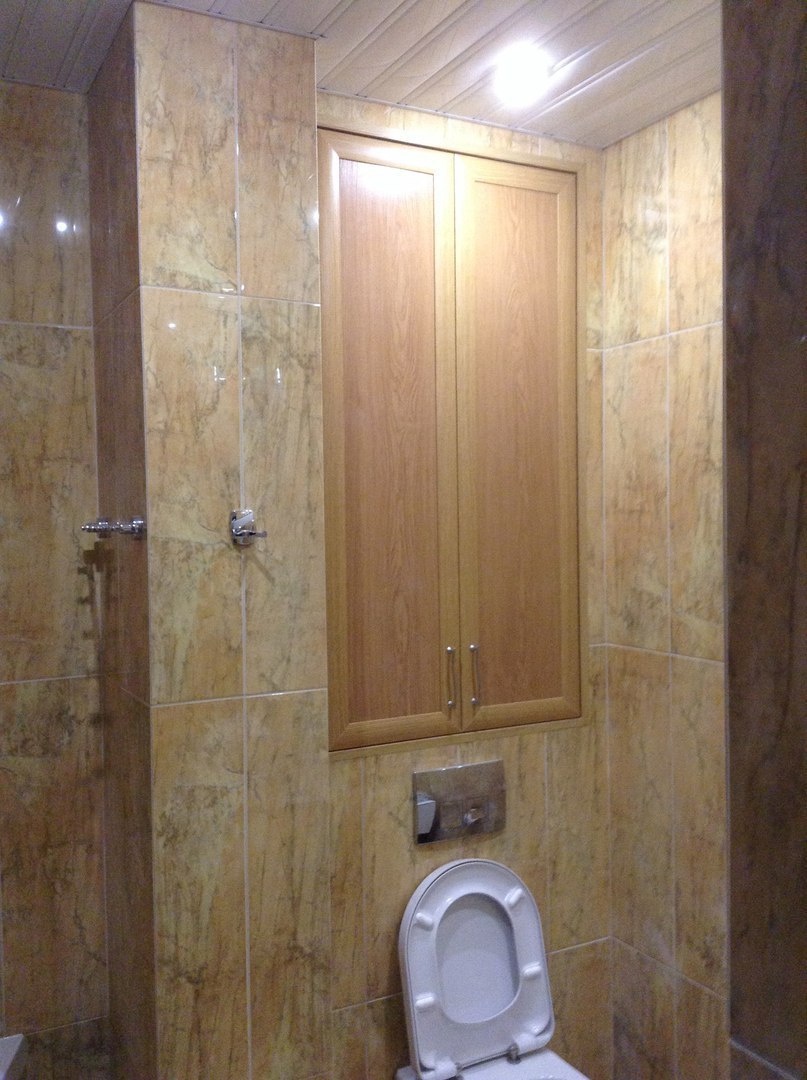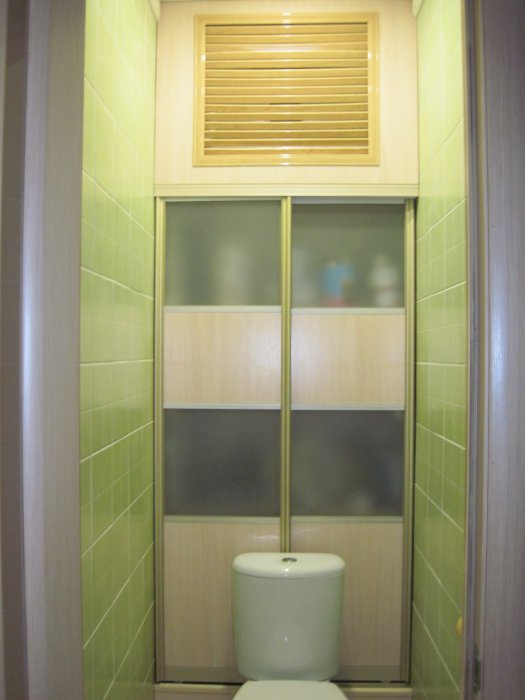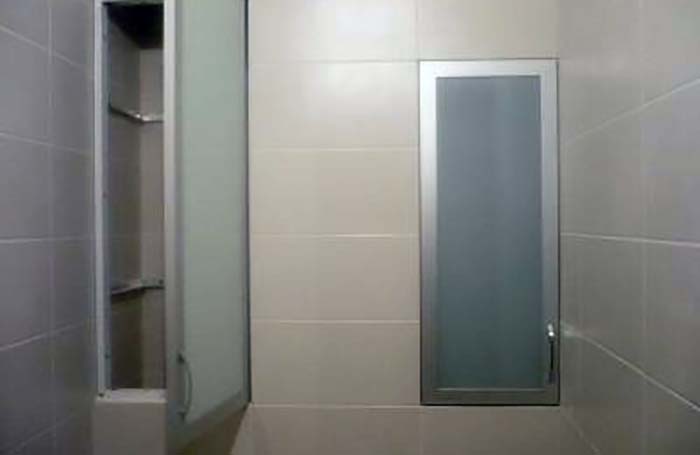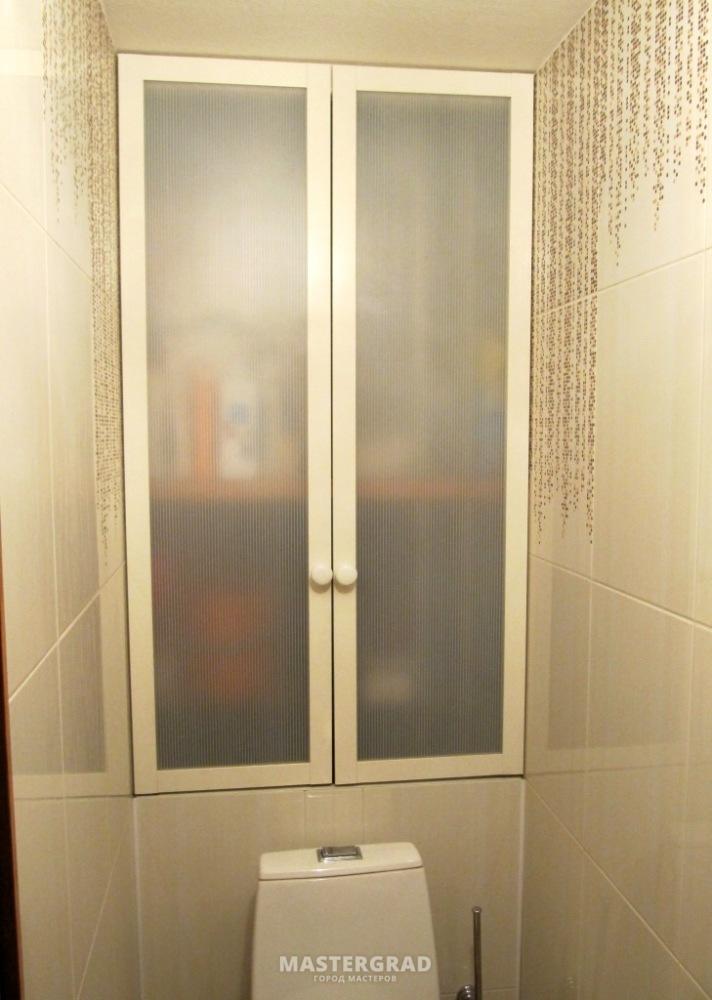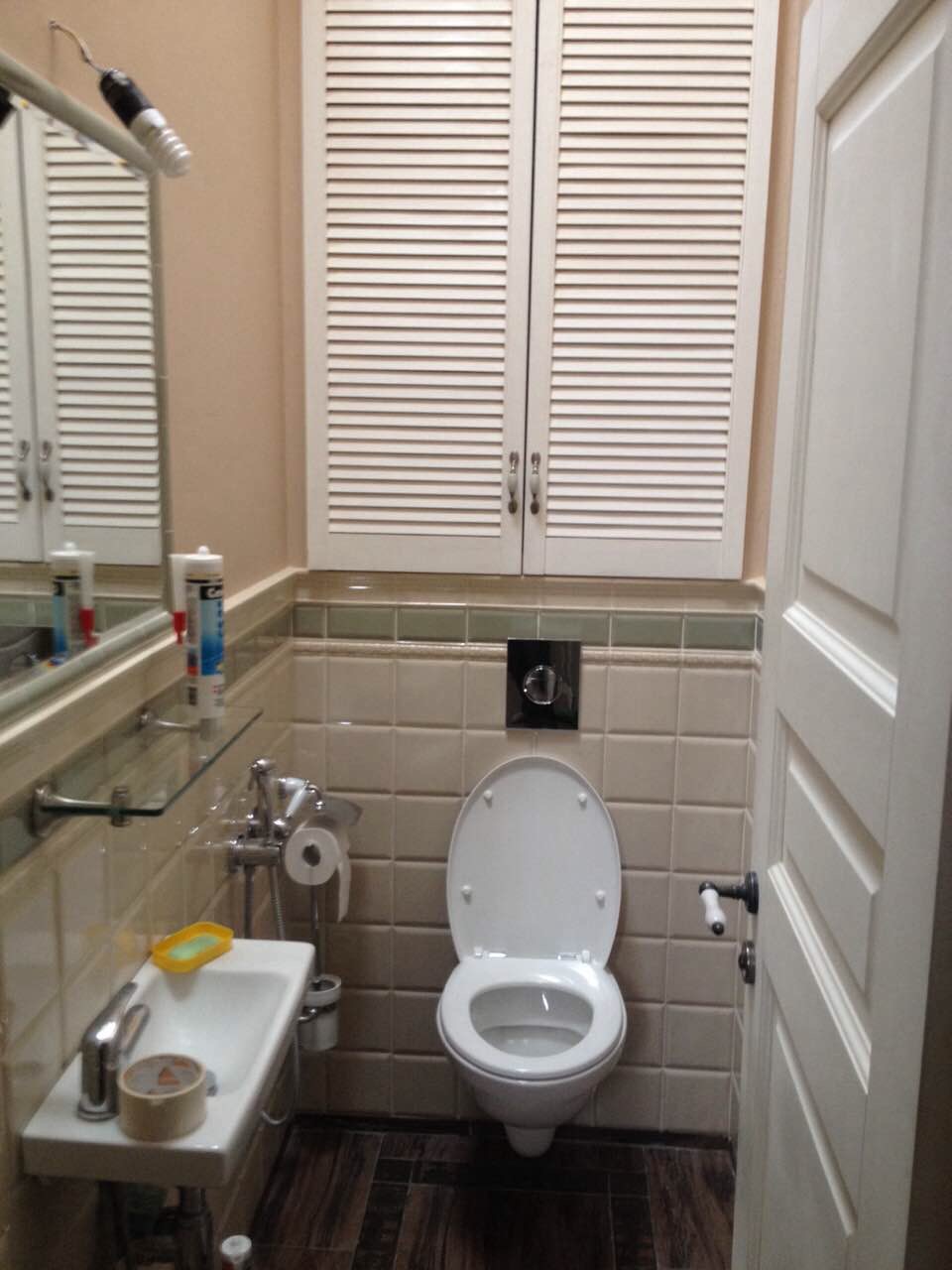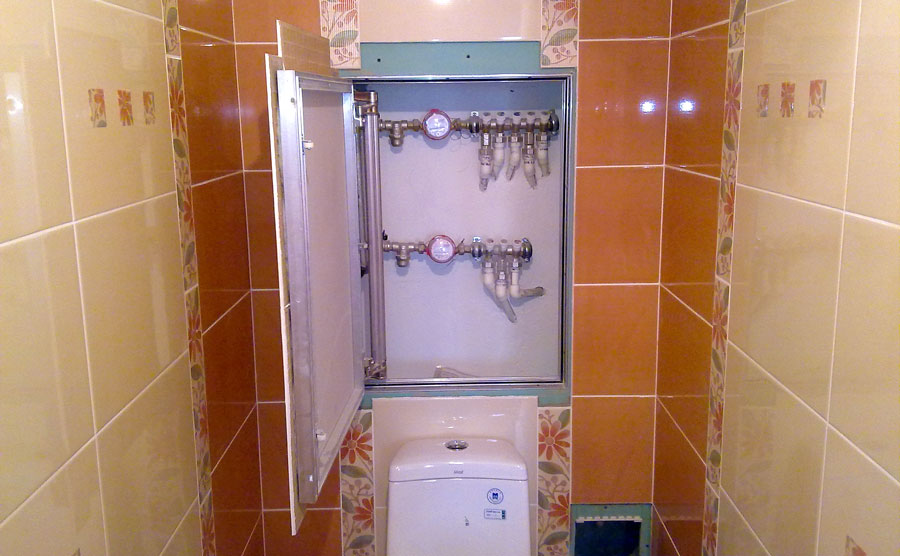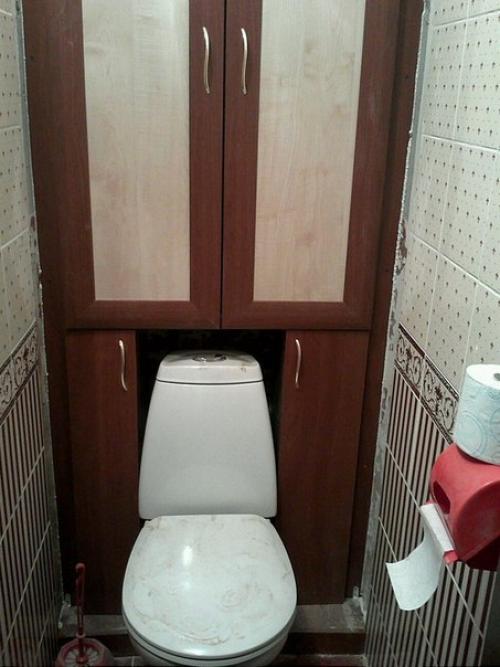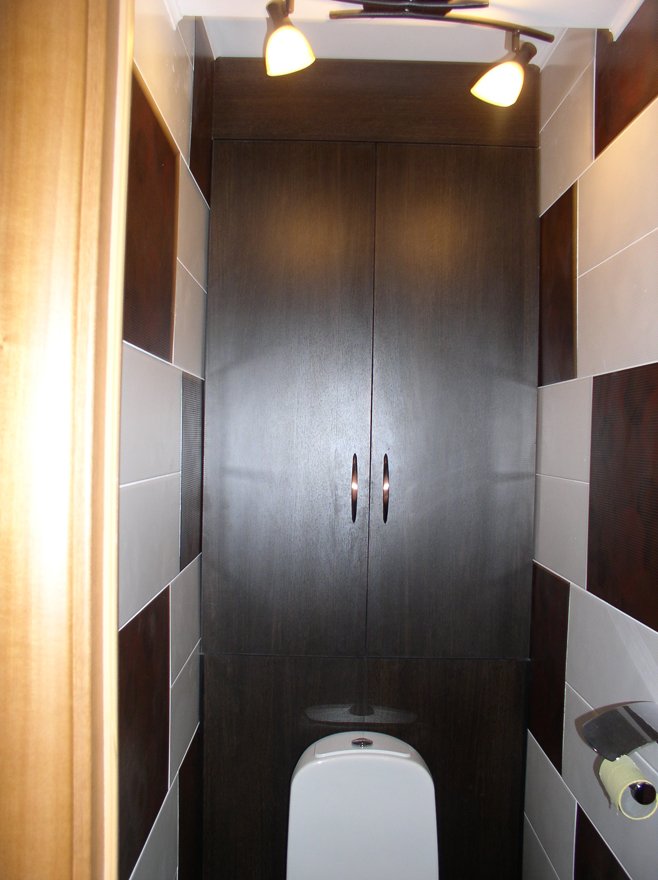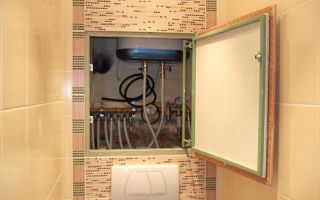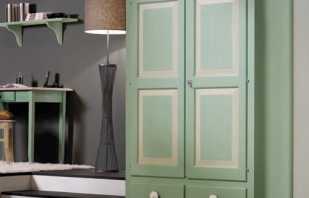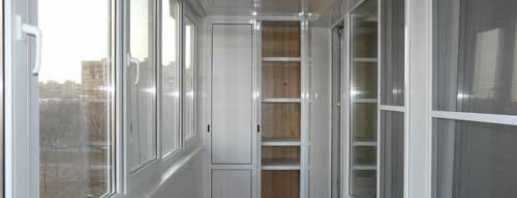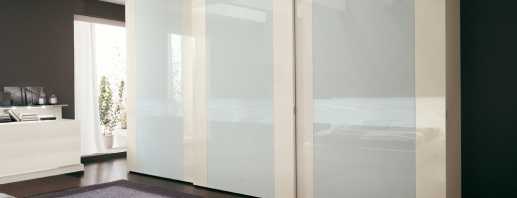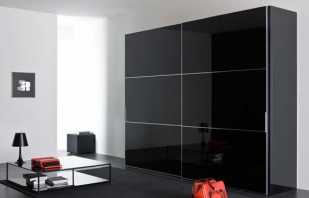What are the plumbing cabinets in the toilet, an overview of the models
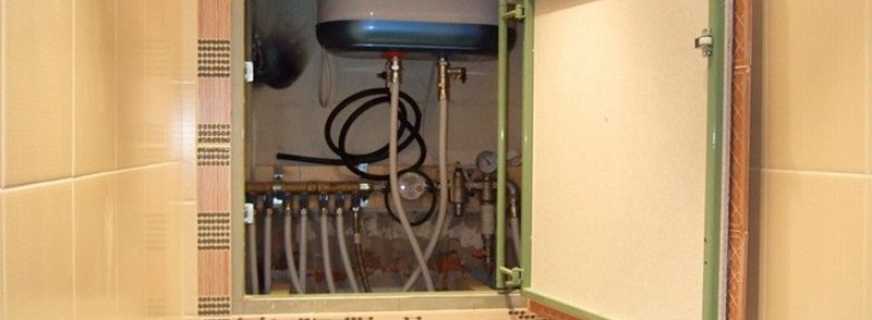
The issue of comfort and coziness in housing depends directly on the aesthetic component of the interior, on its attractiveness and rational use of space. The use of elements such as a sanitary closet in a toilet allows you to hide details that should not be visible from the eyes of residents and guests of the house. We offer you to find out how to choose such a cabinet in the finished form or make it yourself.
Content
Appointment
The toilet is a very important part of the home, from the proper arrangement of which depends on the further ease of its operation. For better ergonomics, a so-called plumbing cabinet is used here, often acting as a hatch in the wall. Consider the main purposes of its use:
- hide communications is the main task of this product. It’s very convenient and practical to hide all pipes by installing them in a specially designated furniture element. Naked communications rarely fit into existing designs, so it’s easier to hide them. They go to most apartments in a special niche that is easy to make a repository;
- Arrangement of additional space for the storage of household chemicals and other cleaning accessories will not be superfluous. Dividing the space into zones for pipes and shelves will help to save a lot of space, so necessary in the conditions of tight bathrooms or separate toilets;
- access to the meters should always be free, so placing them in an accessible place, hidden by furniture doors, will allow you to easily check the water flow in the house;
- breakdowns in pipelines that may occur during the life of a house are easier to repair in easily accessible places than in niches walled up with tiles or clapboard. The cabinet simultaneously hides the pipes from the inhabitants of the house and allows the plumber to get to the pipes, if there is a leak.
Varieties
A variety of sanitary lockers allows you to apply them to any room, and the assortment of their facades will help you choose the most suitable doors for the design of the room. Distinguish this element of furniture according to various criteria.
By the type of door
Plumbing cabinets may vary in type of door. They can be the following:
- louvred doors - can be of two types: roller blinds and so-called pseudo blinds. Rolling doors are very convenient in that they do not take up space in the open position, they are easier to use in hard-to-reach places where ordinary doors simply cannot be opened. Pseudo blinds - an ordinary door, made in the form of blinds, but without moving parts, which is very convenient in terms of ventilation of space with pipes;
- a plumbing hatch covering a niche can be of absolutely any size thanks to the existing range of products from many manufacturers.This is an ordinary frame from the corner, to which a metal door with a lock is attached with hinges. Such a hatch looks simple and uncomplicated, which can not always be combined with the design of the bathroom. A cheap and widespread product is also not very durable;
- swing doors - this is an individual product, often created to order. When assembling a cabinet with hinged doors, it is worth considering the space in front of them for their full opening. Given the materials used, it can be expensive.
According to the material of manufacture
Also, designs are divided into a number of types, depending on the materials of manufacture:
- metal doors are used in the manufacture of hatches for equipping niches. Also, metal is used to design frames and fittings. Do not forget that we are talking about a toilet and a bathroom, where condensate can collect on iron pipes, increasing air humidity. Thus, it is better to use parts made of aluminum or other stainless metals;
- wood is often used to create the facade and cabinet base. Swinging wooden doors can close the built-in wardrobe from floor to ceiling, or separate communications with a small neat door;
- Plastic parts of roller shutters or small hatches are usually made. It is lightweight and inexpensive;
- in addition to wood, for swing doors, you can use tiles attached to a special frame. Such a solution is very useful for maintaining the concept of room design when invisible hatches are used;
- Mirrored surfaces can visually increase the space, and will also fulfill their intended purpose.
Dimensions
The question of choosing the dimensions of the cabinet is very individual, but you should know a few rules that will help to avoid the unpleasant consequences of improper installation:
- a cabinet from the ceiling to the floor is installed if the communications in the toilet occupied the vertical wall. Such a large cabinet gives access to any part of the pipes at any time, which is very convenient during repair work. It’s easy to set up shelves inside a large cabinet and store household supplies and chemicals there. Without using a niche, you should be ready to form a protrusion with dimensions of about 40x70cm;
- a small hatch is designed to provide access to the meter, but it is extremely difficult to repair through it, so owners who are unsure of the condition of the pipelines should choose a different cabinet size;
- the average cabinet size, for example, 50x70cm will provide access to the counter and allow you to install several shelves inside. Usually, cabinets made of wood or with a facade made of tiles are made of this size.
- the dimensions of a secret door are determined by the dimensions of the tile or other material that the room is faced with. Usually 2-4 tiles are used, which forms a door measuring approximately 35-35 or 35-70cm;
- the depth of the cabinet should be such that inside you can work with a key or easily get to the desired valve.
It is worth considering that installing a cabinet is an almost inevitable process, so before replacing pipelines, you should think about how large the structure will be and how well it will fit into the interior of the bathroom or toilet.
Necessary fittings
For a long and high-quality service of a sanitary cabinet, special attention should be paid to the accessories used in this product. Consider what accessories are used for the manufacture and installation of such cabinets, as well as materials of parts:
- hinges - an important component of doors that holds the entire weight of the product, responsible for the correct closing and the absence of gaps between the door and the frame. Hinges should be made of stainless alloys, so they will last longer;
- door closers, when a hinged door is installed on a cabinet, play a very important role. This mechanism is responsible for keeping the door open and smoothly closing it;
- when using roller shutters, one should choose those in which the box is hidden inside the cabinet. Such a roller shutter will fit better into the interior, while preserving the brevity of its design;
- when installing a hidden hatch, tiled, or other material similar to the main one in the bathroom, only a mechanism is acquired that ensures the operation of the door system. The buyer himself must choose how to decorate the device. It is worth remembering that the installation of a secret hatch is carried out before the start of wall decoration;
- locks and latches should work without interruption in order to provide constant and unhindered access to communications. For a secret door, locks are used that open after the user clicks on the door itself. This design allows you to deprive the door of any external handles and locks;
- for a snug fit of the doors to the frame, you can use furniture magnets.
How to do it yourself
Almost any repair is complete without the help of specialists or other hired workers, however, there are times when the owner of the house decides to do something with his own hands. To make a plumbing cabinet with your own hands is quite possible even for not the most experienced repairmen. Here are some helpful tips:
- depending on the particular layout of the room, you will need to install a built-in or wall mounted sanitary cabinet. In the first case, there will be less material consumption and, possibly, the amount of work;
- Having decided on the choice of design, it is worth building a frame. The metal frame is more durable than wooden and more durable. When installing the frame behind the toilet cistern, it is worth remembering that it will interfere with the swing doors to open. A niche frame is a simple rectangle to which a door is attached;
- if the internal space allows you to organize storage in such a cabinet, then you need to install the shelves on the horizontal metal corners attached in advance. When installing shelves, it is very important that they do not touch the pipeline;
- The final step in the assembly is to install the selected facade.
It is important to remember that all parts are treated with moisture-proofing and such a cabinet will last a very long time.
Video


